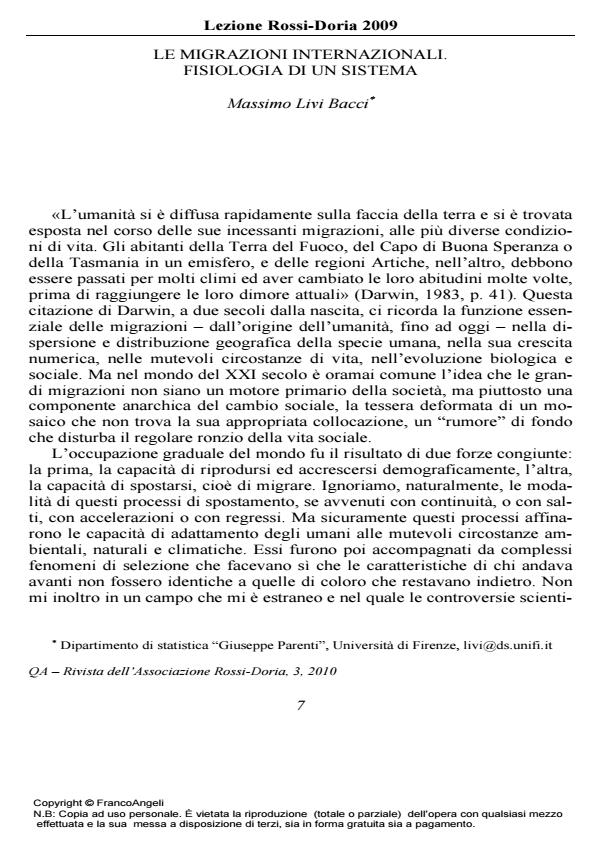International Migratory Movements. The Physiology of a System
Journal title QA Rivista dell’Associazione Rossi-Doria
Author/s Massimo Livi-Bacci
Publishing Year 2010 Issue 2010/3
Language Italian Pages 16 P. 7-22 File size 83 KB
DOI 10.3280/QU2010-003001
DOI is like a bar code for intellectual property: to have more infomation
click here
Below, you can see the article first page
If you want to buy this article in PDF format, you can do it, following the instructions to buy download credits

FrancoAngeli is member of Publishers International Linking Association, Inc (PILA), a not-for-profit association which run the CrossRef service enabling links to and from online scholarly content.
In the 21st century the idea has gained ground that large-scale migration is not a major engine driving society but, rather, an anarchic component of social change, a misfitting tile in the mosaic, background noise breaking into the even hum of social life. And yet the ability to move and migrate is an essential human prerogative - a vital, physiological mechanism in the life of the community. Individual choices, the fitness of the migrants, selective processes and policy have all had deep-reaching impact on international migratory movements in the history of mankind, with complex outcomes for the success of migration. Some examples from the distant past and our own day illustrate the various models and paradigms at the root of international movements that are not extraneous but indeed inherent to the social system.
Keywords: International migrations, Historical migrations, Darwinism, Reproductive fitness
Jel codes: J610, J240, N300, F220
Massimo Livi-Bacci, Le migrazioni internazionali. Fisiologia di un sistema in "QA Rivista dell’Associazione Rossi-Doria" 3/2010, pp 7-22, DOI: 10.3280/QU2010-003001